University for sustainability, sustainable university
The content on this page was translated automatically.
Mission statement and structures
Sustainability mission statement
The University of Kassel aims to be a university for sustainability through its research and teaching and a sustainable university through the way in which it provides its services to society. It thus strives for long-term sustainable and equal development in ecological, economic and social terms. For this reason, research focuses and degree courses are being further developed that are geared towards sustainability issues. In addition, "scientific findings are to be implemented directly at the university - in ecological as well as social and economic terms"
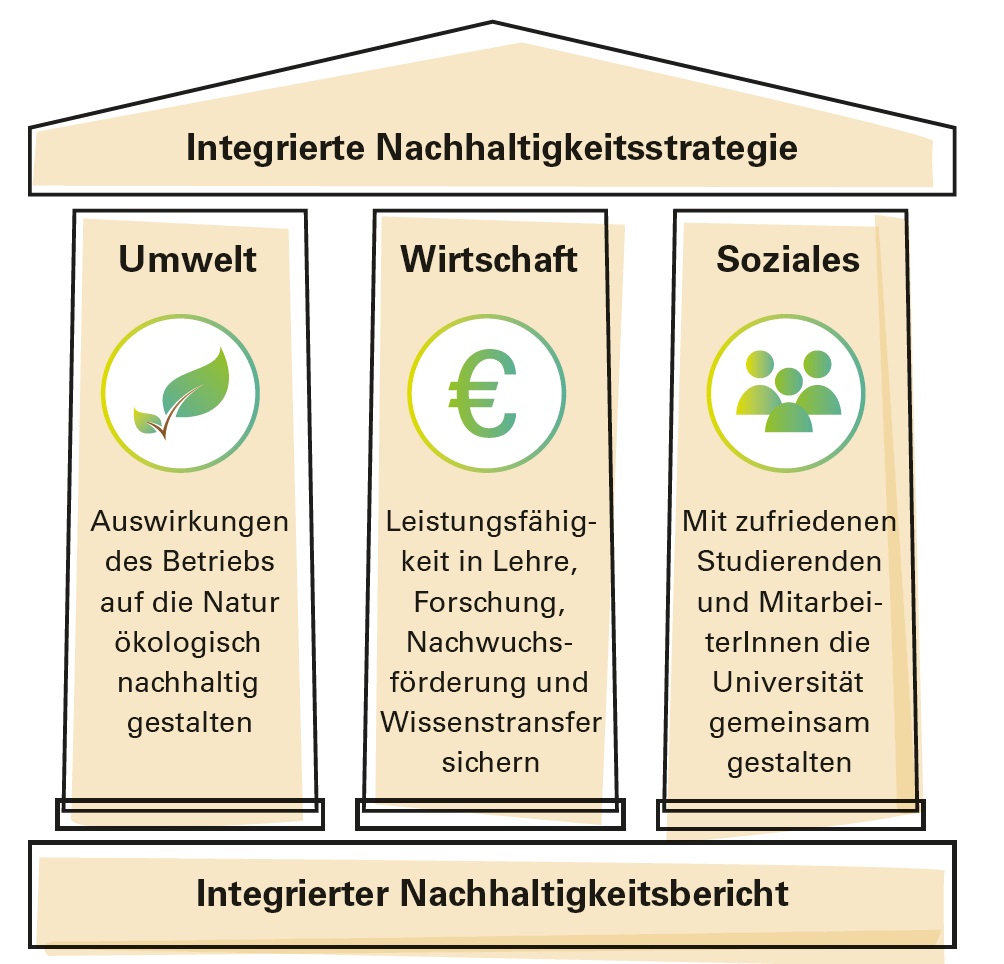
Contact and networking
Since its foundation, the University of Kassel has focused on social, environmental and sustainability-related disciplines. The topic of sustainability has developed into a profile-defining focus within research and teaching, in which over 130 subject areas now research and teach. Some researchers regularly exchange information on projects, calls for proposals and teaching formats in the environmental network.
The Environmental Network is an association of professors who have an environmental focus in their research and/or teaching. New professors are welcome to attend the regular environmental network meetings (usually twice a semester).
Contact
Head of the Environmental Network
Phone: +49 561 804-3462
E-mail: gassmann[at]uni-kassel[dot]de
With the new scientific center, the University of Kassel is bundling its wide range of research and teaching activities related to ecological, economic and social sustainability. Up to 17 new professorships will strengthen these specialist areas and further develop them in a variety of collaborations with the University of Kassel's scientists.
Contact the
Office
Sabine Säck-da Silva (Dr.-Ing.)
Phone: +49 561 804-7756
The task of UniKassel Transfer is to actively harness the university's knowledge and expertise for society, initiate collaborations, foster partnerships and thus create added value for both sides. With the SDG+ Lab, Uni KasselTransfer is dedicated to the major sustainability issues of our time. From 2023 to 2027, the SDG+ Lab will bring together science, business and society and develop impulses and concrete solutions for a sustainable region of Kassel and North Hesse along the 17 Sustainable Development Goals (SDG) of the United Nations.
Contact
Head of UniKasselTransfer
Daniel Opper
Phone +49 561 804-2734
E-mail: opper[at]uni-kassel[dot]de
Web: UniKasselTransfer / SDG+ Lab
The Green Office is the point of contact and service point for all questions and suggestions relating to sustainability in the company and on campus and initiates and coordinates sustainability-related activities and projects.
Contact
Representative for occupational safety, health, environmental protection and sustainability in the company
Georg Mösbauer
Phone +49 561 804 3811
E-mail address moesbauer[at]uni-kassel[dot]de
Transformative processes
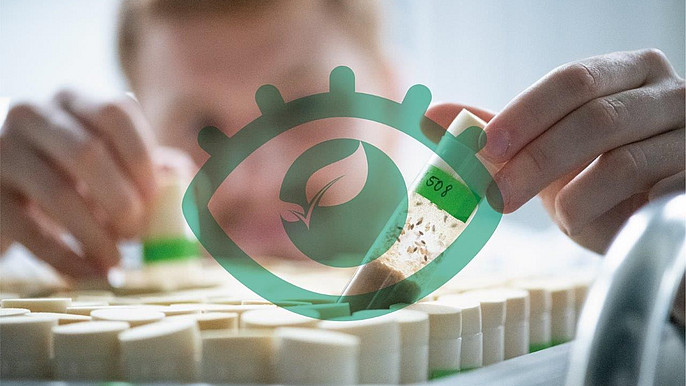
Sustainability research
At the University of Kassel, research and teaching in the field of environmental sciences has always been carried out predominantly in interdisciplinary cooperation between the natural sciences, engineering, social sciences and social sciences. The environmental profile is particularly characterized by the relationship between the environment and society. The focus is on questions of climate protection, resource and species conservation as well as the necessary transformation of societies in all parts of the world. The university is also closely linked to institutions in North Hesse that deal with issues of ecological sustainability.
The University of Kassel aims to contribute to the goal of sustainable development through its research. In the spirit of the triple bottom line, the university's researchers therefore take their social responsibility seriously and are committed to greater social justice and a secure livelihood for future generations. The University's environmental profile has always been particularly characterized by the large number of subject areas that conduct research into social, economic and ecological sustainability and deal with the relationship between the environment and society. Currently, 130 departments are conducting research directly on sustainability topics, increasingly pursuing interdisciplinary cooperation.
The scientific center "Kassel Institute for Sustainability", which was established in December 2020, has complemented the broad range of research and teaching related to ecological, economic and social sustainability since 2022. In addition to existing professorships, up to 17 further professorships will be active. With the new scientific center, new research focal points on the corner topics of nature, technology, culture and society are to be developed in cooperation with the departments on the overarching topic of sustainability.
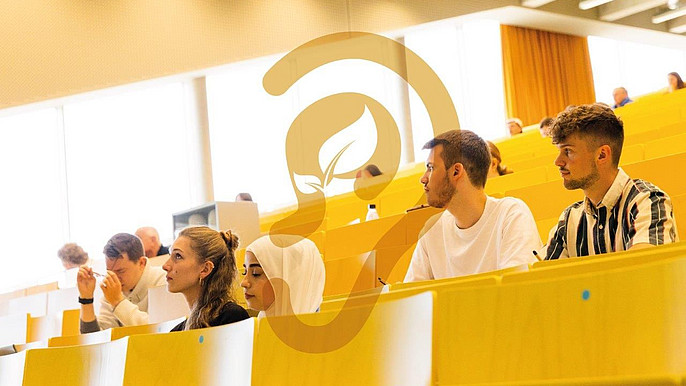
Sustainability in teaching
At the University of Kassel there are a variety of environmental and sustainability-related degree courses and doctoral programs that deal with questions and problems of environmentally relevant behavior and action as well as ecological aspects and practice-oriented tasks for the preservation of the basis of life for present and future generations. For this reason, they not only impart theoretical knowledge, but also aim to promote action and design skills as well as creativity and problem awareness in equal measure.
Education for sustainable development and the promotion of young talent in the field of sustainability are key features of the University of Kassel's profile. Numerous courses and a variety of interdisciplinary further education courses in the field of sustainability offer a broad and well-founded basis for professional profiling in degree courses. In recent years, new Master's degree courses have been introduced, particularly in the social, societal and engineering sciences. The absolute number of students on these courses and their ratio to all students has risen significantly in recent years. The university is responding to the increasing demand and is adapting the structure of courses on the topics of the environment and sustainability from year to year. Sustainability pillars and integrated sustainability studies are to be offered in many degree courses.
A broad range of sustainability courses:
- The International Winter University and the International Summer University are offered by UNIKIMS, the Management School of the University of Kassel. Their programs have an environmental science focus and convey the relevance of global environmental issues.
- The Research and Teaching Centre for Entrepreneurial Thinking and Action (Fludh) offers a range of courses in the field of entrepreneurship under the label "Unikat Education" to promote entrepreneurial skills that can be recognized as key competencies.
- The Department of Human Sciences offers the Internationalization and Education for Sustainable Development (InterESD) study profile , whichenables prospective teachers to introduce and implement education for sustainable development in schools and lessons in an interdisciplinary manner.
- The Coordination Office for Service Learning and Social Engagement links teaching and learning with commitment to the common good. Students learn to respond to a real social need in projects that benefit charitable institutions.
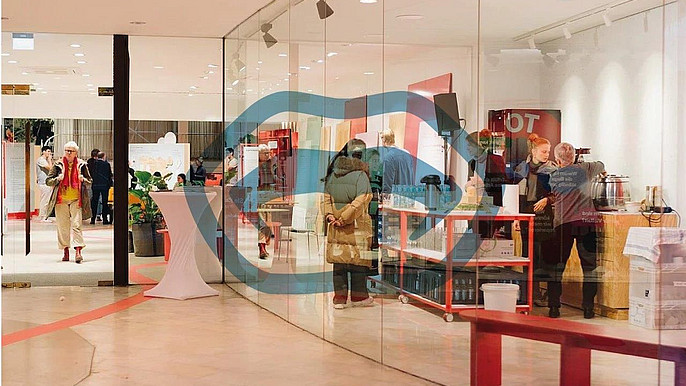
Sustainability and knowledge transfer
UniKasselTransfer was created not only to initiate and support transfer activities, but also to carry them out itself. All transfer-oriented activities such as patent and innovation management, start-up support, in-service training, the Citizens' University, dual study programs and service-learning formats are bundled there. The offerings are supplemented by the subsidiaries Science Park GmbH and UNIKIMS GmbH.
The university is aware that knowledge transfer must take place at all levels and considers the transfer of scientific findings and information to various target groups and the exchange with these target groups to be particularly important. The current transfer concept (2021 to 2025) also pursues this approach, focusing on the "major societal challenges" and developing knowledge transfer conceptually and strategically into a design-oriented transfer. The Science Park also contributes to this further development, supporting in particular spin-offs with a sustainability focus. By 2027, the University of Kassel will establish and test a profile-forming transfer laboratory for the transfer between science, business and society: the SDG+ Lab. The lab will be dedicated to the major sustainability issues of our time and aims to develop concrete solutions, including for the North Hesse region.
A broad offering in the area of knowledge transfer for a sustainable society:
- At the Children's University, events are offered in the form of easy-to-understand lectures for eight to twelve-year-olds, which increasingly also cover sustainability issues.
- The Institute for Protestant Theology offers a children's academy, an educational and vacation program for children aged eight to twelve as well as a practice-oriented module for teachers and students with an interest in educational work.
- Every year, the "Technology Day " is held for pupils in the sixth form at the university's technical and scientific departments. Future school leavers are given access to laboratories and workplaces and an insight into research and technology.
- The tropical greenhouse of the Department of Ecological Agricultural Sciences is an extracurricular place of learning. The project "The Political Plant" was launched in 2019 in cooperation with the Department of Didactics of Political Education. The project combines biodiversity education and political education.
- The now over 150 members of the "Scientists for Future" group work in nine working groups on a wide range of topics. For example, they design lectures at schools, ensure the transfer of knowledge to the public and support the work of the Climate Protection Council of the City of Kassel.
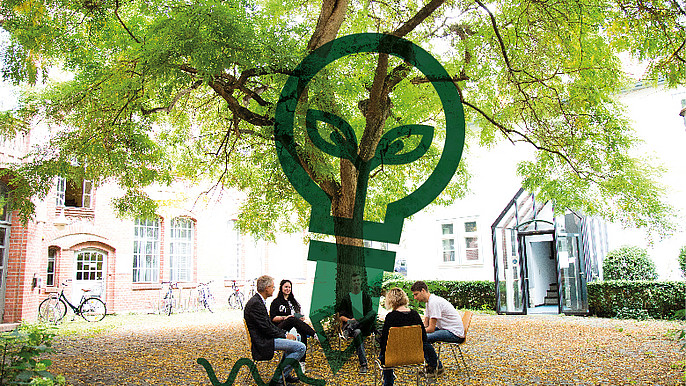
Sustainability in university operations
Operational sustainability development is driven by the Green Office. It is located on the Holländischer Platz campus and is the central point of contact, organization, networking and coordination for all areas and members of the university. This is because sustainability issues should not only be increasingly addressed in research and teaching, but should also be applied in day-to-day university operations. The University of Kassel is thus building on its many years of successful environmental profile development.
The Green Office promotes the sustainable development of operational processes as a cross-departmental and cross-institutional task. Its work is based on guidelines for the sustainable development of the university. The main focus is on improving environmental performance and steering measures that help to promote commitment within the university in terms of a sustainable organizational culture. It is also about increasing transparency, improving communication and enabling participation in the development process.
The sustainability guidelines for university operations support the sustainability strategy in the sense that the protection of nature and the environment is seen as an important task in all decisions and activities. In addition, the environmental awareness of university members is promoted by giving high priority to ecological aspects. As fundamental changes can only be made together, the Green Office pursues a participatory approach that relies on the involvement of everyone: Interested students and staff can get involved in sustainable campus development through many participation formats, e.g. in the form of ideas workshops, challenges, sustain groups and energy and campus tours, and contribute directly to the sustainability process.
The step-by-step sustainable development of the university takes place along four thematic clusters:
- Thematic cluster " Go:Green" aims to inform and involve all university stakeholders.
- The " Green:Campus " thematic cluster is committed to a more sustainable campus life and focuses on topics relating to the quality of stay and life on campus.
- The " Green:University " thematic cluster deals with all topics relating to university operations, its facilities and protective measures.
- The " Green:Energy " thematic cluster is dedicated to the topic of energy and resource management against the background of reducing greenhouse gas emissions and structural, technical or organizational energy efficiency measures.
Reporting
- Fourth report on sustainability in research, teaching and operations
- Third report on sustainability in research, teaching and operations
- Second report on sustainability in research, teaching and operations
- First report on sustainability in research, teaching and operations
- Abridged version - First report on sustainability in research, teaching and operations